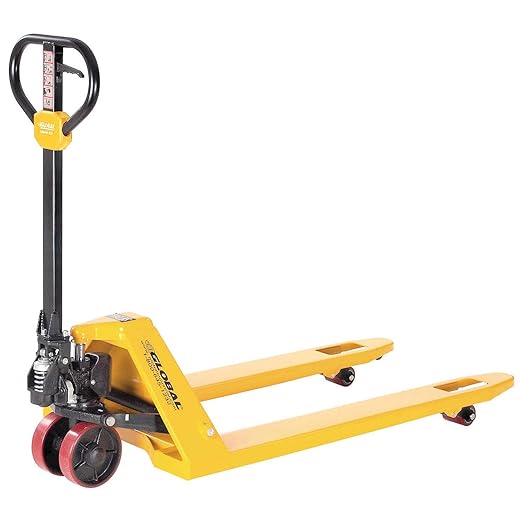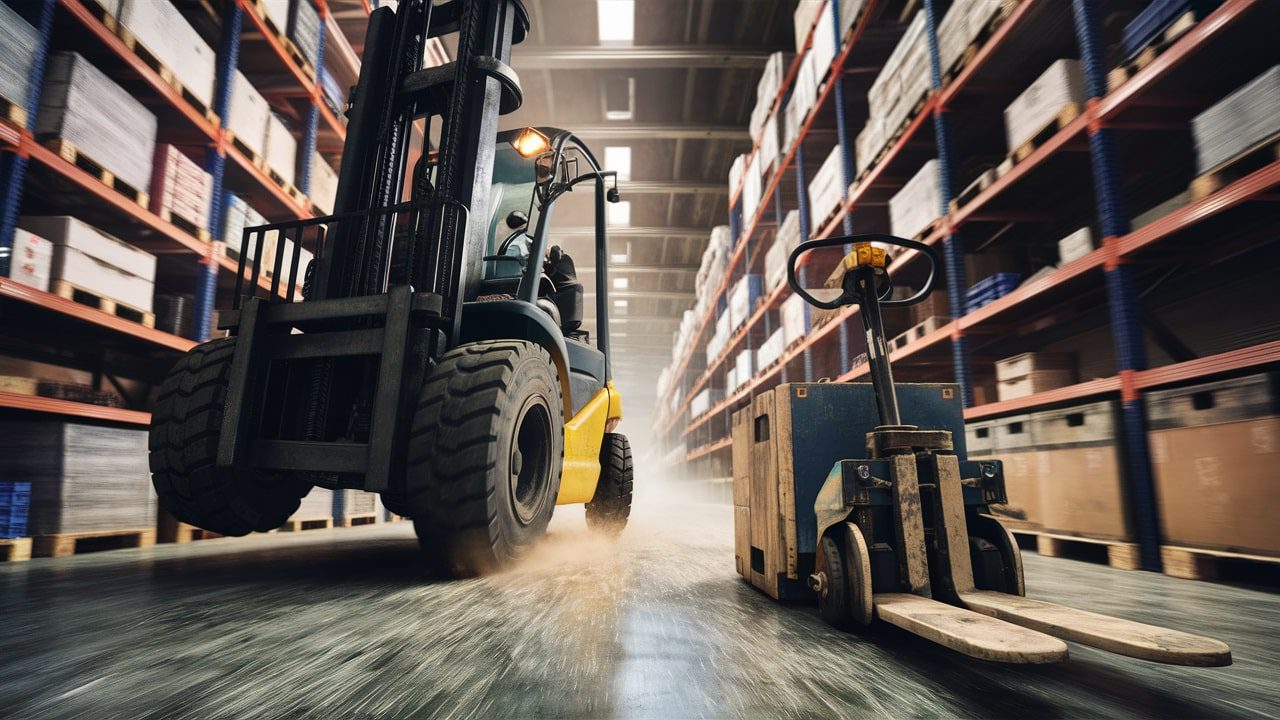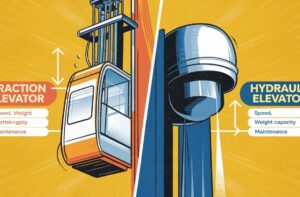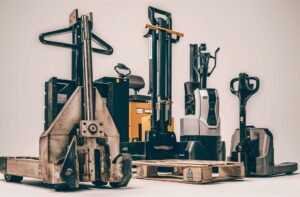
Understanding the Difference: Forklift vs. Pallet Jack
In the realm of warehouse management, the twin pillars of efficiency and safety stand as the foundation for success. As I a business operator, I know managing a warehouse is not just about storing goods—it’s about optimizing every square foot, ensuring that processes are streamlined, and safeguarding both inventory and personnel. Choosing the right equipment can make a significant difference in your operations. Two of the most common tools for moving goods are forklifts and pallet jacks, but they serve different purposes and come with their own set of advantages and disadvantages.
Making the Right Choice for Your Warehouse: Forklift vs Pallet Jack
Choosing between a forklift and a pallet jack depends on several factors, including the size of your warehouse, the nature of the goods you handle, and your budget. For larger warehouses with heavy lifting needs, a forklift may be the better option. On the other hand, for smaller operations, businesses, or spaces where fast movement is key, a pallet jack might be the more practical choice.
Before that, let me describe to you what a forklift & pallet jack are. Then, the decision is up to you.
1) Forklifts: Power and Versatility
- Forklifts are powerful machines capable of lifting heavy loads and transporting them over greater distances within a warehouse. These machines are equipped with a mast and forks that can raise pallets several feet off the ground, making them ideal for stacking goods or reaching high shelves. Forklifts come in various types, including electric, gas, and diesel, each suited to different environments and needs.
Advantages of Forklifts:
- Higher Load Capacity: Forklifts can handle much heavier loads compared to pallet jacks, making them suitable for larger warehouses or operations that deal with heavy items.
- Increased Reach: Forklifts can lift goods to higher places, allowing for more efficient use of vertical storage space.
- Speed and Efficiency: Forklifts can move faster and more efficiently over long distances, reducing time spent on transporting goods.
Disadvantages of Forklifts:
- Cost: Forklifts are significantly more expensive to purchase and maintain than pallet jacks.
- Training Required: Operating a forklift requires specialized training and certification.
- Space Requirements: Forklifts need more space to maneuver, making them less suitable for small or crowded warehouses.
2) Pallet Jacks: Simplicity and Accessibility
Pallet jacks, also known as pallet trucks, are simpler, more affordable tools designed for moving pallets over short distances. They are typically used in smaller warehouses or in areas where forklifts cannot operate. There are two types of pallet jacks: one manual and the other electrical. In addition, we have defined different types of pallet jacks in another article for your easy understanding.

Advantages of Pallet Jacks:
- Affordability: Pallet jacks are much less expensive than forklifts, both in terms of initial cost and maintenance.
- Ease of Use: Operating a pallet jack is straightforward and requires minimal training.
- Maneuverability: Pallet jacks are smaller and can navigate tight spaces more easily than forklifts.
Disadvantages of Pallet Jacks:
- Limited Load Capacity: Pallet jacks cannot lift as much weight as forklifts, making them less suitable for heavy-duty tasks.
- No Vertical Lift: Pallet jacks are limited to ground-level transport and cannot lift goods to high shelves.
- Slower Movement: Pallet jacks are slower than forklifts, which may reduce efficiency in larger warehouses.
Conclusion
Ultimately, the best equipment for your warehouse will depend on your specific needs and circumstances. By understanding the strengths and limitations of both forklifts and pallet jacks, you can make an informed decision that enhances your warehouse’s efficiency and safety.
FAQ: Forklift vs. Pallet Jack
1. Which is safer to use, a forklift or a pallet jack?
Both forklifts and pallet jacks are safe when used correctly, but they come with different risks. Forklifts require specialized training due to their power and complexity, and improper use can lead to severe accidents. Pallet jacks are simpler to operate and pose less risk of serious injury, but improper handling can still cause harm or damage to goods.
2. Can a pallet jack be used in place of a forklift?
A pallet jack can be used in place of a forklift for light-duty tasks and in smaller spaces, but it cannot match the lifting capacity or reach of a forklift. If your warehouse requires heavy lifting or accessing high shelves, a forklift would be necessary.
3. How much weight can a typical pallet jack lift?
Manual pallet jacks can typically lift between 2,200 to 5,500 pounds, while electric pallet jacks might handle slightly more. However, this is still much less than the capacity of most forklifts, which can lift loads ranging from 3,000 to over 50,000 pounds, depending on the model.
4. Is it worth investing in a forklift for a small warehouse?
For small warehouses with limited space and lighter lifting needs, a pallet jack might be more practical and cost-effective. However, if your operations involve heavy lifting or the need for vertical storage, investing in a forklift could be worthwhile.
5. What kind of maintenance do forklifts and pallet jacks require?
Forklifts require regular maintenance, including checks on the engine, hydraulics, and safety systems. This can be costly and time-consuming. Pallet jacks, particularly manual ones, require less maintenance, mainly focusing on the wheels, handle, and hydraulics.
6. Do I need a license to operate a pallet jack?
While you don’t need a formal license to operate a manual pallet jack, some workplaces may require you to undergo basic training. Electric pallet jacks may require more comprehensive training, especially in workplaces with strict safety regulations.
7. How do I decide between an electric and a manual pallet jack?
An electric pallet jack is better suited for larger warehouses or situations where heavy loads need to be moved frequently. A manual pallet jack is ideal for smaller warehouses or occasional use, offering a more cost-effective and straightforward option.
Read out to learn more from another article.





Pingback: 5 Essential Forklift Pallet Jacks
Pingback: Top 1200lbs Forklift Safety Cages: Best Heavy-Duty Man Baskets for Aerial Jobs
Pingback: Scissor Lift Rentals in the USA: Affordable Solutions for Your Next Big Project